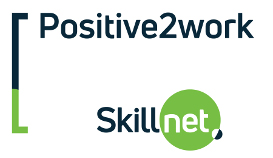ITIL 4 Foundation
Course duration: 3 Days
Course overview
The ITIL 4 Foundation qualification is intended to introduce candidates to the management of modern IT-enabled services, to provide them with an understanding of the common language and key concepts, and to show them how they can improve their work and the work of their organization with ITIL 4 guidance. Furthermore, the qualification will provide the candidate with an understanding of the ITIL 4 service management framework and how it has evolved to adopt modern technologies and ways of working.
The ITIL 4 Foundation examination is intended to assess whether the candidate can demonstrate sufficient recall and understanding of the ITIL 4 service management framework, as described below, to be awarded the ITIL 4 Foundation qualification. The ITIL 4 Foundation qualification is a prerequisite for the ITIL 4 higher level qualifications, which assess the candidate’s ability to apply their understanding of the relevant parts of the ITIL framework in context.
Aims and objectives
The ITIL Framework is a source of good practice in service management. ITIL is used by organisations world-wide to establish and improve capabilities in service management. Service Management is a set of specialised organisational capabilities for providing value to customers in the form of services. The capabilities take the form of functions and processes for managing services over a lifecycle, with specializations in strategy, design, transition, operation, and continual improvement. The capabilities represent a service organisation’s capacity, competency, and confidence for action. The act of transforming resources into valuable services is at the core of service management. Without these capabilities, a service organisation is merely a bundle of resources that by itself has relatively low intrinsic value for customers.
Who should attend
This course is suitable for anyone working in IT with an interest in Service Management.
It is equally applicable to those who wish to apply ITIL ‘Best Practice’ principles across an enterprise.
It is specifically aimed at those who have not previously attended and ITIL Foundation course. Although if you attended Foundation level training many years ago this course provides an excellent refresher.
Course content
1. Understand the key concepts of service management
1.1 Recall the definition of:
a) Service
b) Utility
c) Warranty
d) Customer
e) User
f) Service management
g) Sponsor
1.2 Describe the key concepts of creating value with services:
a) Cost
b) Value
c) Organization
d) Outcome
e) Output
f) Risk
g) Utility
h) Warranty
1.3 Describe the key concepts of service relationships:
a) Service offering
b) Service relationship management
c) Service provision
d) Service consumption
2. Understand how the ITIL guiding principles can help an organization adopt and adapt service management
2.1 Describe the nature, use and interaction of the guiding principles
2.2 Explain the use of the guiding principles (4.3):
a) Focus on value (4.3.1 – 4.3.1.4)
b) Start where you are (4.3.2 – 4.3.2.3)
c) Progress iteratively with feedback (4.3.3 – 4.3.3.3)
d) Collaborate and promote visibility (4.3.4 – 4.3.4.4)
e) Think and work holistically (4.3.5 – 4.3.5.1)
f) Keep it simple and practical (4.3.6 – 4.3.6.3)
g) Optimize and automate (4.3.7 – 4.3.7.3)
3. Understand the four dimensions of service management
3.1 Describe the four dimensions of service management (3):
a) Organizations and people (3.1)
b) Information and technology (3.2)
c) Partners and suppliers (3.3)
d) Value streams and processes (3.4-3.4.2)
4. Understand the purpose and components of the ITIL service value system
4.1 Describe the ITIL service value system (4.1)
5. Understand the activities of the service value chain, and how they interconnect
5.1 Describe the interconnected nature of the service value chain and how this supports value streams (4.5)
5.2 Describe the purpose of each value chain activity:
a) Plan
b) Improve
c) Engage
d) Design & transition
e) Obtain/build
f) Deliver & support
6. Know the purpose and key terms of 15 ITIL practices
6.1 Recall the purpose of the following ITIL practices:
a) Information security management (5.1.3)
b) Relationship management (5.1.9)
c) Supplier management (5.1.13)
d) IT asset management (5.2.6)
e) Monitoring and event management (5.2.7)
f) Release management (5.2.9)
g) Service configuration management (5.2.11)
h) Deployment management (5.3.1)
i) Continual improvement (5.1.2)
j) Change control (5.2.4)
k) Incident management (5.2.5)
l) Problem management (5.2.8)
m) Service request management (5.2.16)
n) Service desk (5.2.14)
o) Service level management (5.2.15)
6.2 Recall definitions of the following ITIL terms:
a) IT asset
b) Event
c) Configuration item
d) Change
e) Incident
f) Problem
g) Known error
7. Understand 7 ITIL practices
7.1 Explain the following ITIL practices in detail, excluding how they fit within the service value chain:
a) Continual improvement (5.1.2) including: The continual improvement model (4.6, fig 4.3)
b) Change control (5.2.4)
c) Incident management (5.2.5)
d) Problem management (5.2.8)
e) Service request management (5.2.16)
f) Service desk (5.2.14)
g) Service level management (5.2.15 – 5.2.15.1)
Certification
Foundation Certificate in IT Service Management – ITILV4
